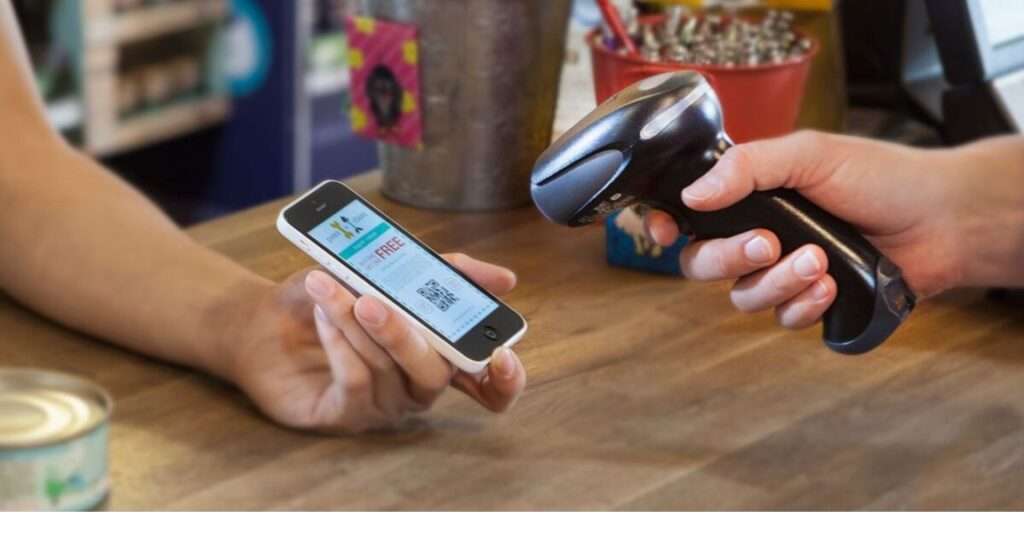31
May
Exploring the Latest Barcode Scanner Technology Trends in 2023

Barcodes have been around for decades, but the technology behind them is constantly evolving. As we enter 2023, there are exciting new trends in barcode scanner technology that are revolutionizing the way businesses operate. From faster scanning speeds to more accurate data capture, the latest barcode scanners are making inventory management, shipping and receiving, and even point-of-sale transactions more efficient than ever before. But with so many options on the market, how do you know which barcode scanner is right for your business? In this article, we’ll explore the latest trends in barcode scanner technology and look at some of the top products that are leading the way in 2023. So whether you’re a small business owner or a logistics professional, read on to discover how the latest barcode scanner technology can help you streamline your operations and stay ahead of the competition.
The evolution of barcode scanner technology
The first barcode scanner was invented in 1974 by George Laurer, and it used laser technology to read the barcode. Since then, barcode scanner technology has come a long way. The latest barcode scanners use advanced imaging technology, such as CMOS sensors and high-resolution cameras, to read barcodes quickly and accurately.
In addition to the hardware, barcode scanner software has also advanced significantly. Modern scanners use sophisticated algorithms to decode barcodes, even when they are damaged or poorly printed. Some scanners can even read barcodes from a distance, making it easier to scan items that are on high shelves or in hard-to-reach areas.
Latest barcode scanner technology trends in 2023
In 2023, there are several exciting trends in barcode scanner technology that are worth exploring. Here are some of the top trends to watch out for:
1. Faster scanning speeds
One of the biggest trends in barcode scanner technology is faster scanning speeds. Modern scanners can scan barcodes at lightning-fast speeds, making it possible to scan multiple items in seconds. This is particularly useful in industries that require high-volume scanning, such as logistics and retail.
2. Mobile barcode scanners
Another trend in barcode scanner technology is the rise of mobile scanners. Mobile scanners are handheld devices that can be carried around and used to scan barcodes on the go. They are particularly useful for businesses that require scanning in multiple locations, such as warehouses and retail stores.
3. Wireless connectivity
Wireless connectivity is also becoming increasingly important in barcode scanner technology. Modern scanners can connect to Wi-Fi or Bluetooth networks, making it easier to transmit data in real-time. This is particularly useful in industries that require real-time inventory management, such as logistics and healthcare.
Benefits of using modern barcode scanners
The latest barcode scanner technology offers several benefits for businesses. Here are some of the top advantages of using modern barcode scanners:
1. Improved accuracy
Modern barcode scanners are incredibly accurate and can read barcodes even when they are damaged or poorly printed. This helps to prevent errors and ensures that inventory data is accurate and up-to-date.
2. Increased efficiency
The speed and accuracy of modern barcode scanners make inventory management, shipping and receiving, and point-of-sale transactions more efficient. This can help businesses save time and money and improve customer satisfaction.
3. Real-time data capture and analysis
Modern barcode scanners can capture and transmit data in real-time, making it possible to analyze inventory data and identify trends and patterns quickly. This can help businesses make informed decisions and optimize their operations for maximum efficiency.
Types of barcode scanners – handheld, fixed, and mobile
There are several types of barcode scanners available, each with its own advantages and disadvantages. Here’s a breakdown of the most common types:
1. Handheld barcode scanners
Handheld barcode scanners are the most common type of barcode scanner. They are lightweight, easy to use, and can be used to scan barcodes from a distance. Handheld scanners are ideal for businesses that require mobility and versatility, such as retail stores and warehouses.
2. Fixed barcode scanners
Fixed barcode scanners are stationary devices that are mounted in a fixed location, such as a checkout counter or conveyor belt. Fixed scanners are ideal for businesses that require high-volume scanning, such as supermarkets and distribution centers.
3. Mobile barcode scanners
Mobile barcode scanners are handheld devices that can be carried around and used to scan barcodes on the go. They are particularly useful for businesses that require scanning in multiple locations, such as warehouses and retail stores.
How barcode scanners improve supply chain management
Barcode scanners are an essential tool in supply chain management, enabling businesses to track inventory, monitor shipments, and streamline their operations. Here are some of the ways that barcode scanners can improve supply chain management:
1. Real-time inventory tracking
Barcode scanners enable businesses to track inventory levels in real-time, making it easier to manage stock levels and avoid stockouts or overstocking.
2. Improved order accuracy
Barcode scanners help to prevent errors in order fulfillment by ensuring that the right products are picked and shipped to the right customers.
3. Faster shipping and receiving
Barcode scanners enable businesses to quickly scan incoming and outgoing shipments, making it easier to manage the flow of goods in and out of the warehouse.
Barcode scanner software and integration with other systems
In addition to the hardware, barcode scanner software is also an essential component of barcode scanner technology. Modern barcode scanner software is highly sophisticated, enabling businesses to capture and analyze data in real-time. Barcode scanner software can also be integrated with other systems, such as inventory management software and point-of-sale systems, to create a seamless workflow.
Choosing the right barcode scanner for your business
Choosing the right barcode scanner for your business can be a daunting task, given the wide range of options available. Here are some key factors to consider when choosing a barcode scanner:
1. Scanning speed and accuracy
The scanning speed and accuracy of the barcode scanner are critical factors to consider, especially if you have a high-volume scanning requirement.
2. Mobility and versatility
If you require mobility and versatility, a handheld or mobile scanner may be the best option for your business.
3. Integration with other systems
If you already have an existing inventory management or point-of-sale system, it’s important to choose a barcode scanner that can integrate with your existing software.
Future of barcode scanner technology
The future of barcode scanner technology looks bright, with continued advancements in hardware and software. Some of the key trends to watch out for in the future include:
1. Artificial intelligence
Artificial intelligence is expected to play a more significant role in barcode scanner technology, enabling scanners to read and interpret data more accurately.
2. Augmented reality
Augmented reality is also expected to play a more significant role in barcode scanner technology, enabling businesses to overlay digital information on the real world.
3. Internet of Things
The Internet of Things (IoT) is expected to revolutionize barcode scanner technology, enabling businesses to track inventory and monitor shipments in real-time.
Conclusion
Barcode scanner technology has come a long way since its inception in the 1970s, and the latest trends in barcode scanner technology are making inventory management, shipping and receiving, and point-of-sale transactions more efficient than ever before. With so many options on the market, it’s important to choose the right barcode scanner for your business. By considering factors such as scanning speed and accuracy, mobility and versatility, and integration with other systems, you can ensure that you choose a barcode scanner that meets your business needs. As barcode scanner technology continues to evolve, we can expect to see even more exciting advancements in the years to come.
